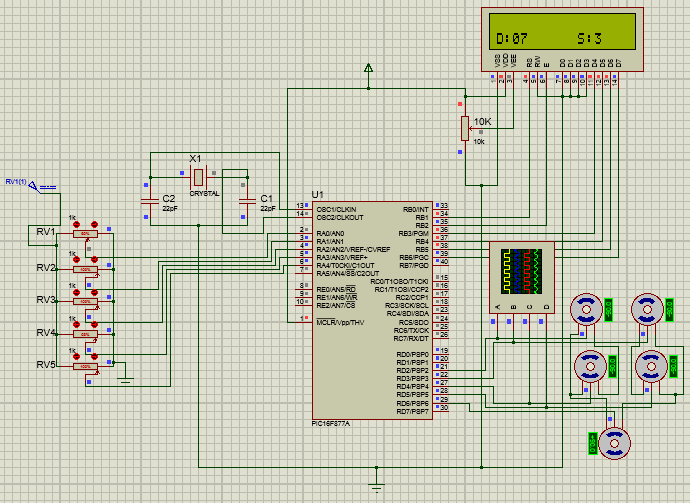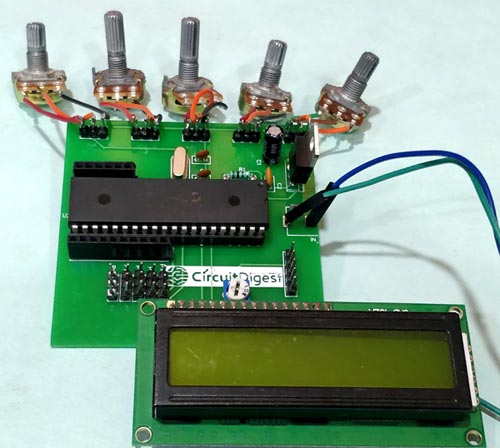OL7 Online Learning Resources Controlling a Robotic Arm with a Microbit Circuit Diagram This paper focuses on model design, simulation and control of a five degree of freedom (DoF) robotic arm using servo motors. The robotic arm is controlled by a PIC 16F877A microcontroller and its main function is to generate pulse width modulation (PWM) signals which are applied to the servo motors for achieving the desired rotation angle.

This paper presents the development of robot arm control using an Arduino controller. The work involves the integration of Arduino microcontrollers and sensors to enable precise and dynamic control of a robotic arm. The proposed robot is controlled by 4 servo motors, the motors rotate left, right, front, and back.

STM32 Robot Arm Controller Circuit Diagram
Assuming that you have somehow got hold of your robotic Arm lets proceed into the project. Circuit Diagram The Complete circuit diagram for this PIC Microcontroller based Robotic Arm is shown below. The schematics was drawn using EasyEDA. The circuit diagram is pretty simple; the complete project is powered by the 12V adapter.
This STM32 Nucleo expansion board has a switching regulator to provide up to 3 A to 6 servo motors. It also translates a 3.3 V PWM signal from the microcontroller to 5 V for each of the servo motors, and has a power enable signal. A unique feature is its Wii Nunchuck connector. This makes it ideal for controlling a robotic arm, such as the EEZYbotARM MK2, using a reverse-engineered I2C

Robotic Arm Control using PIC Microcontroller Circuit Diagram
We have already built a Record and Play Robotic Arm using Arduino which could be trained to do a particular task and made to repeat forever. In this tutorial, we will use the industry standard PIC16F877A 8-bit Microcontroller to control the same robotic arm with potentiometers. Effortless control: Explore Robotic Arm Control using PIC Microcontroller to enhance precision and automation in Arduino projects.

